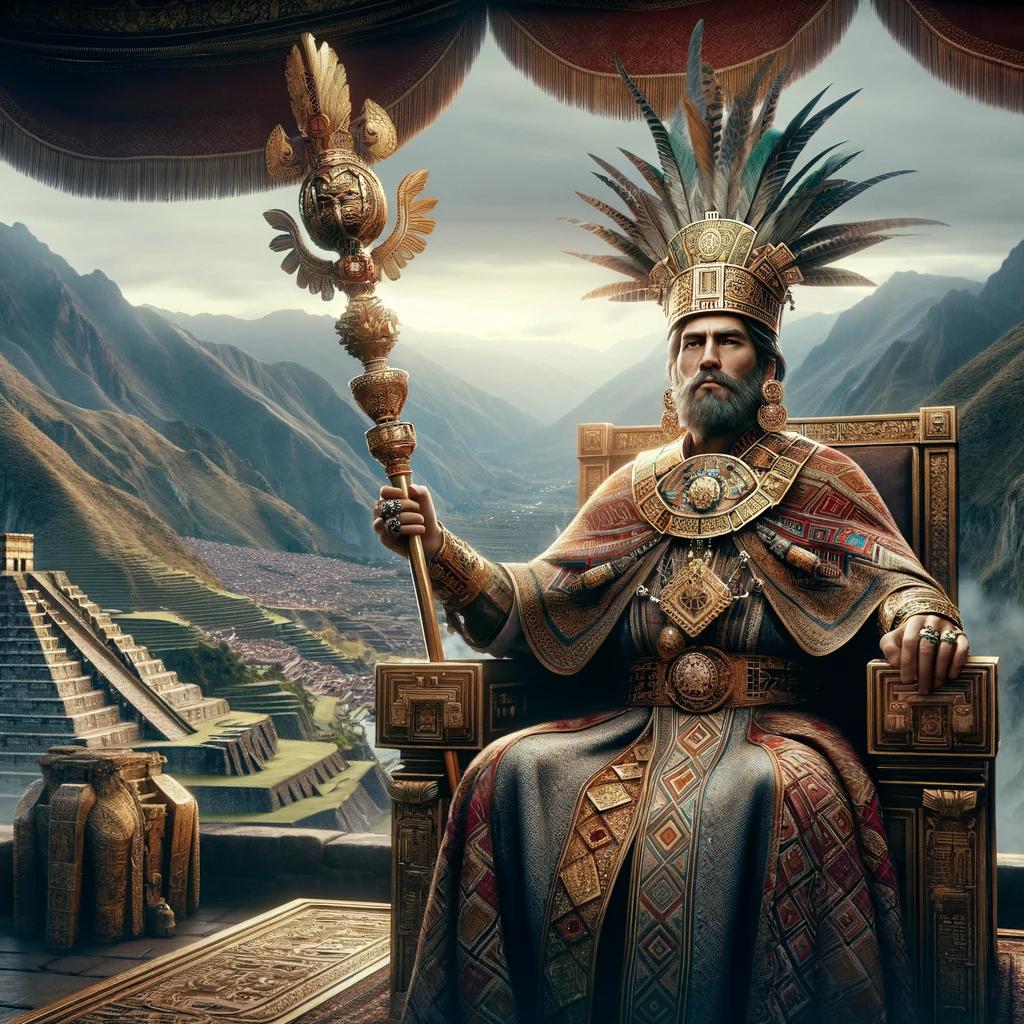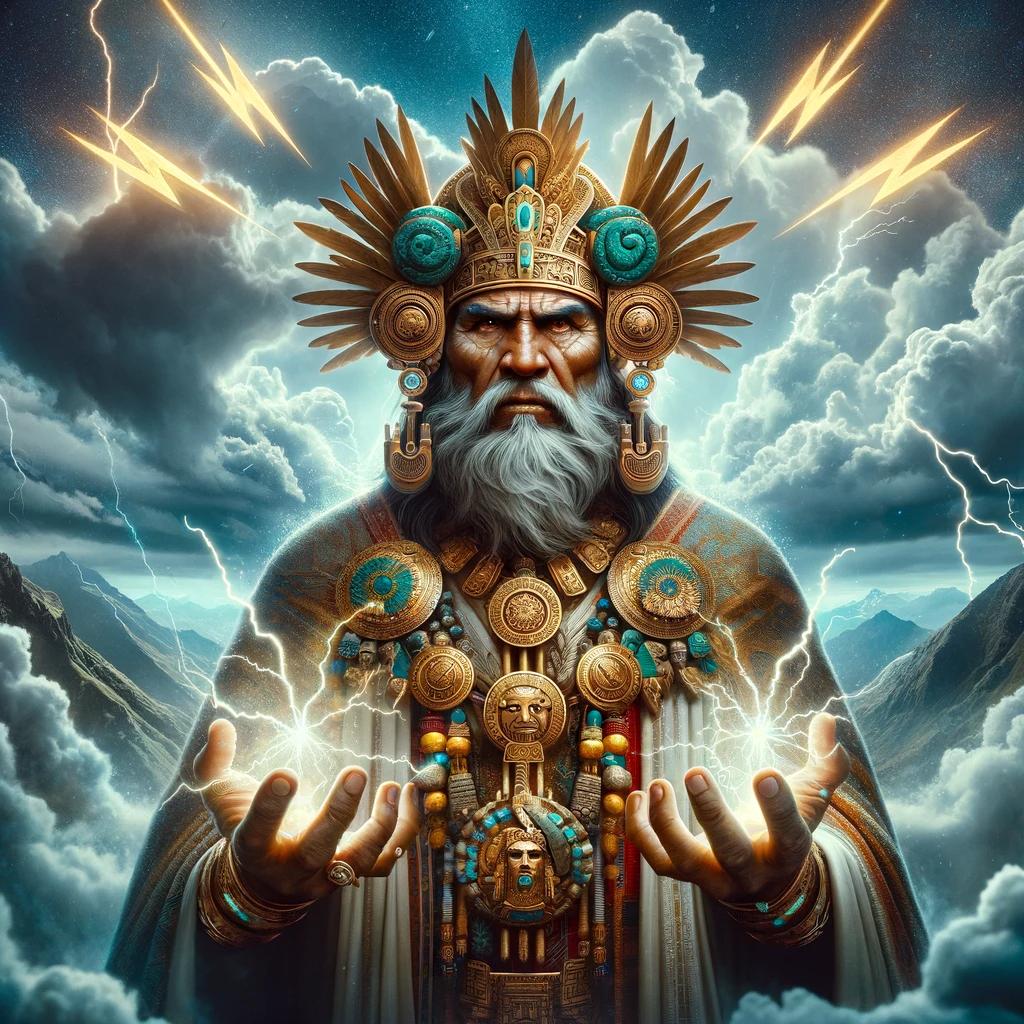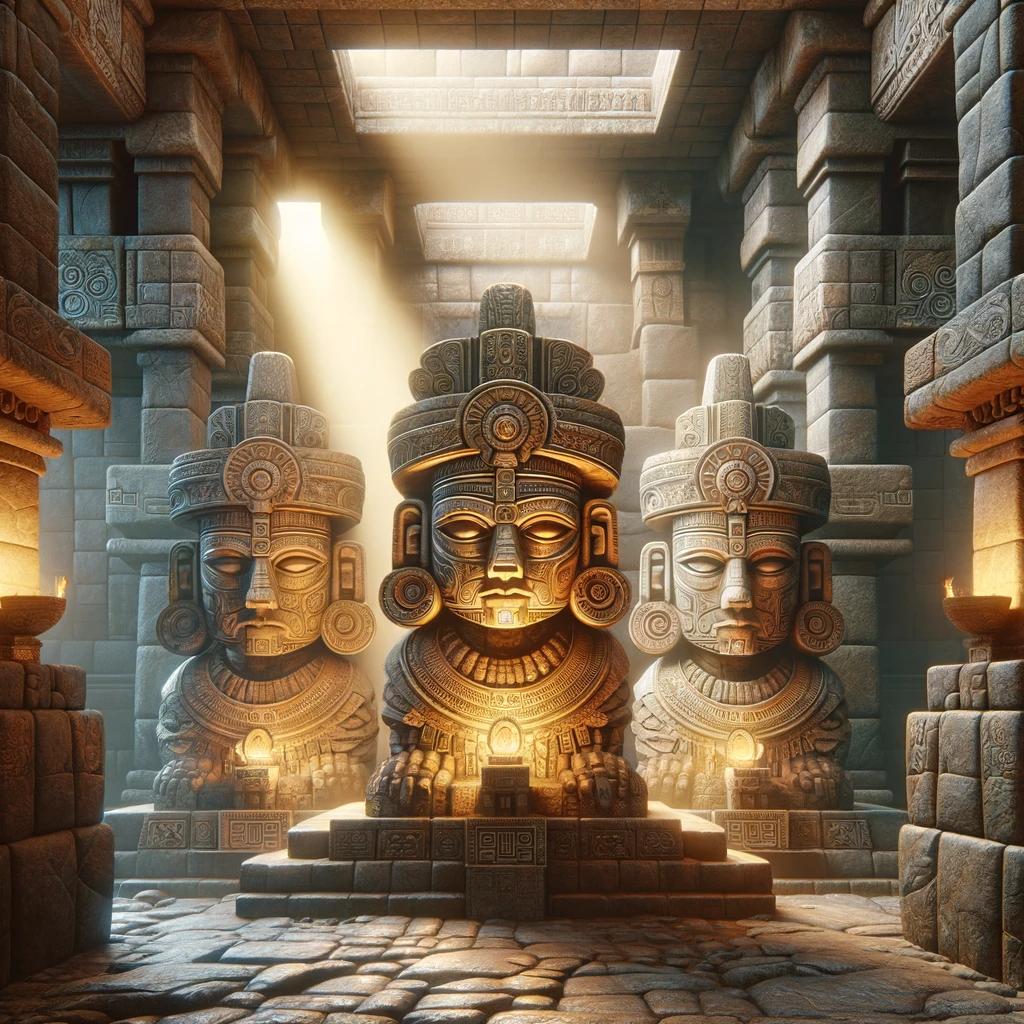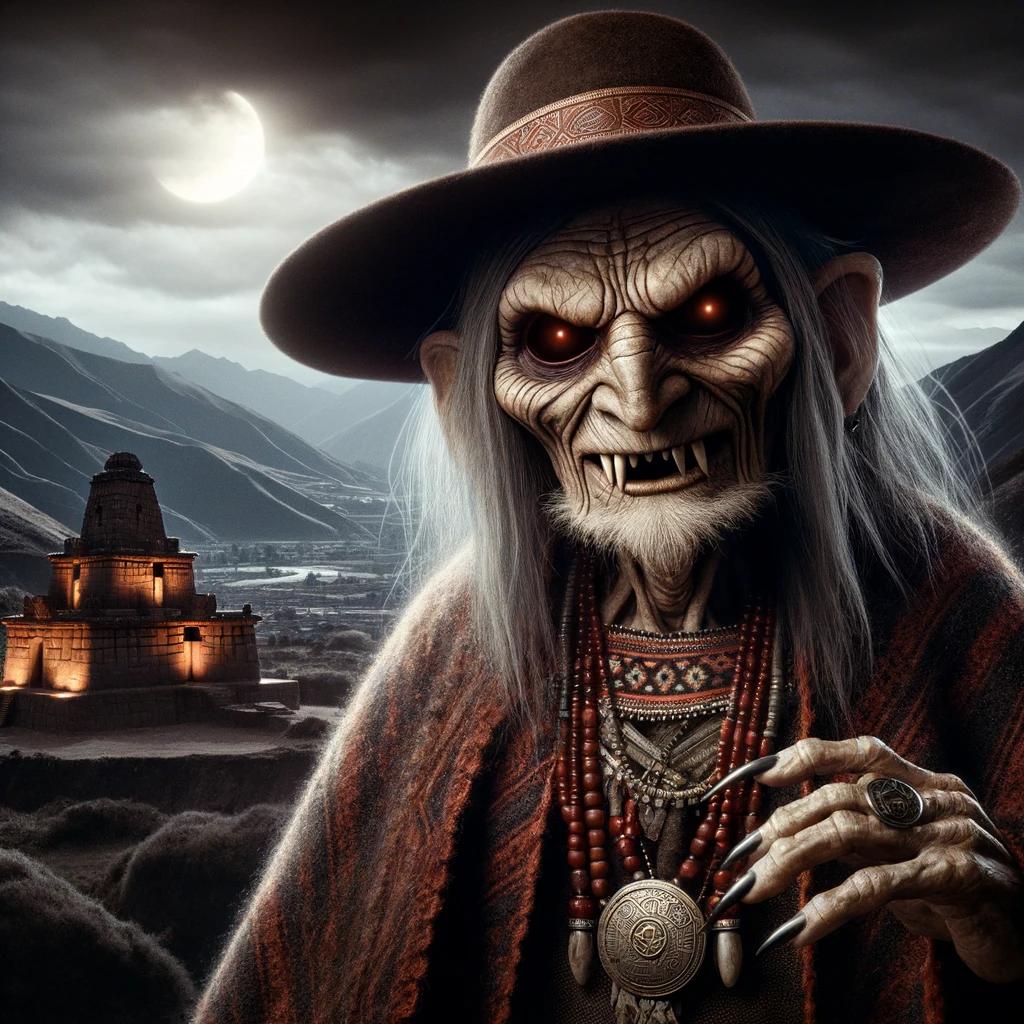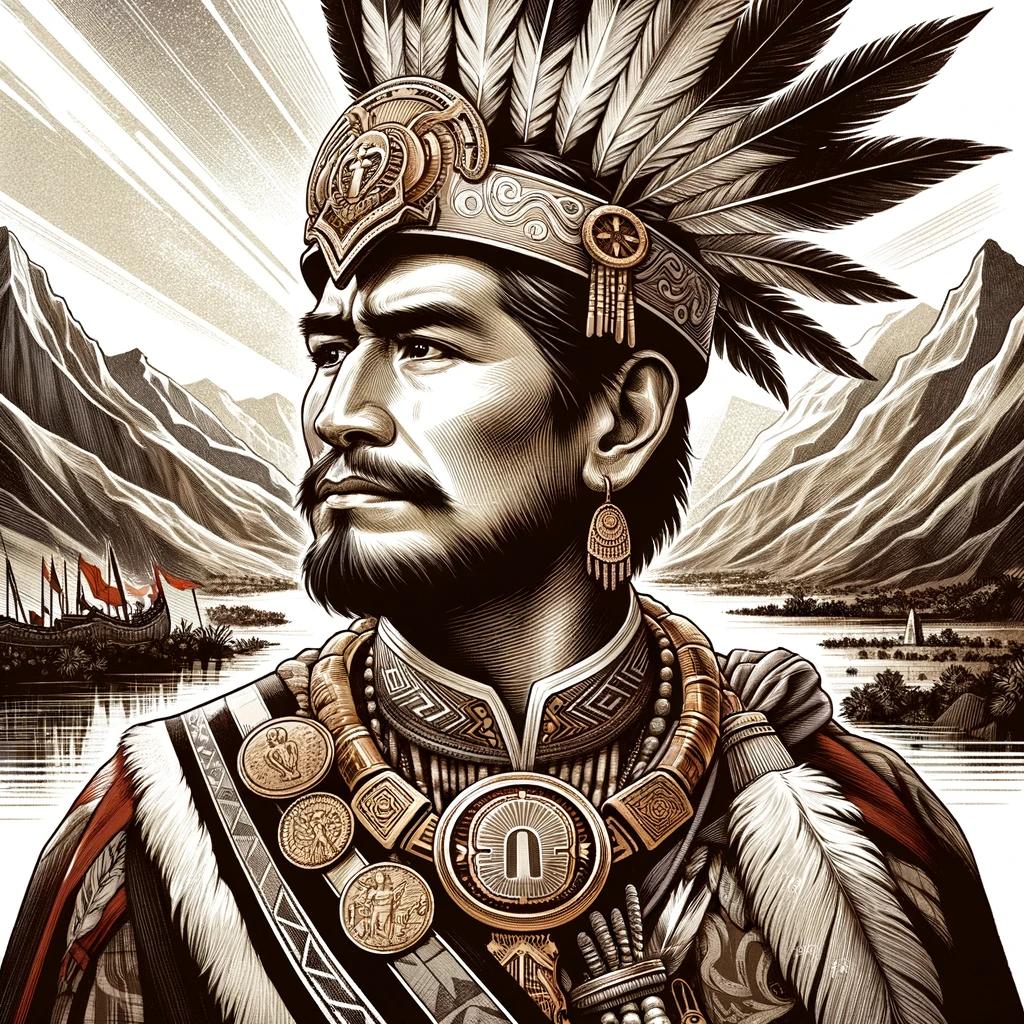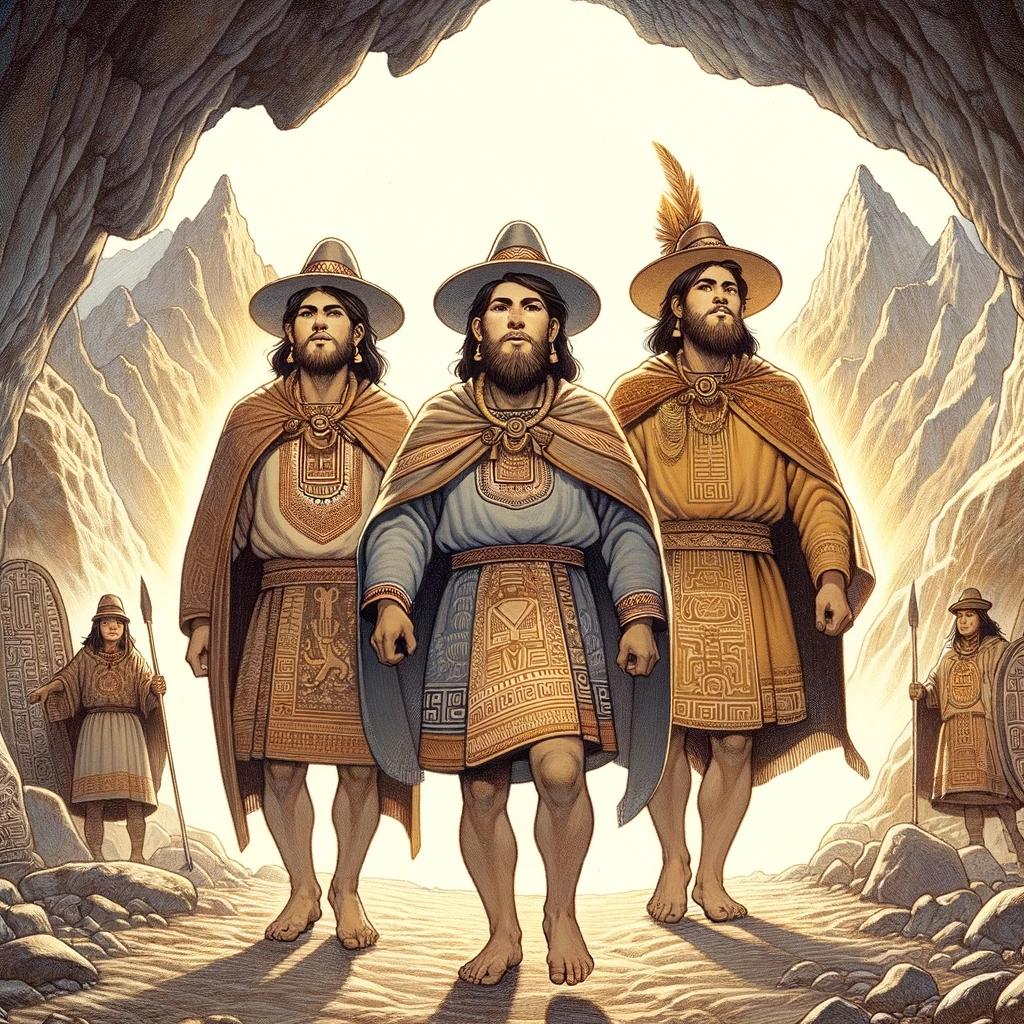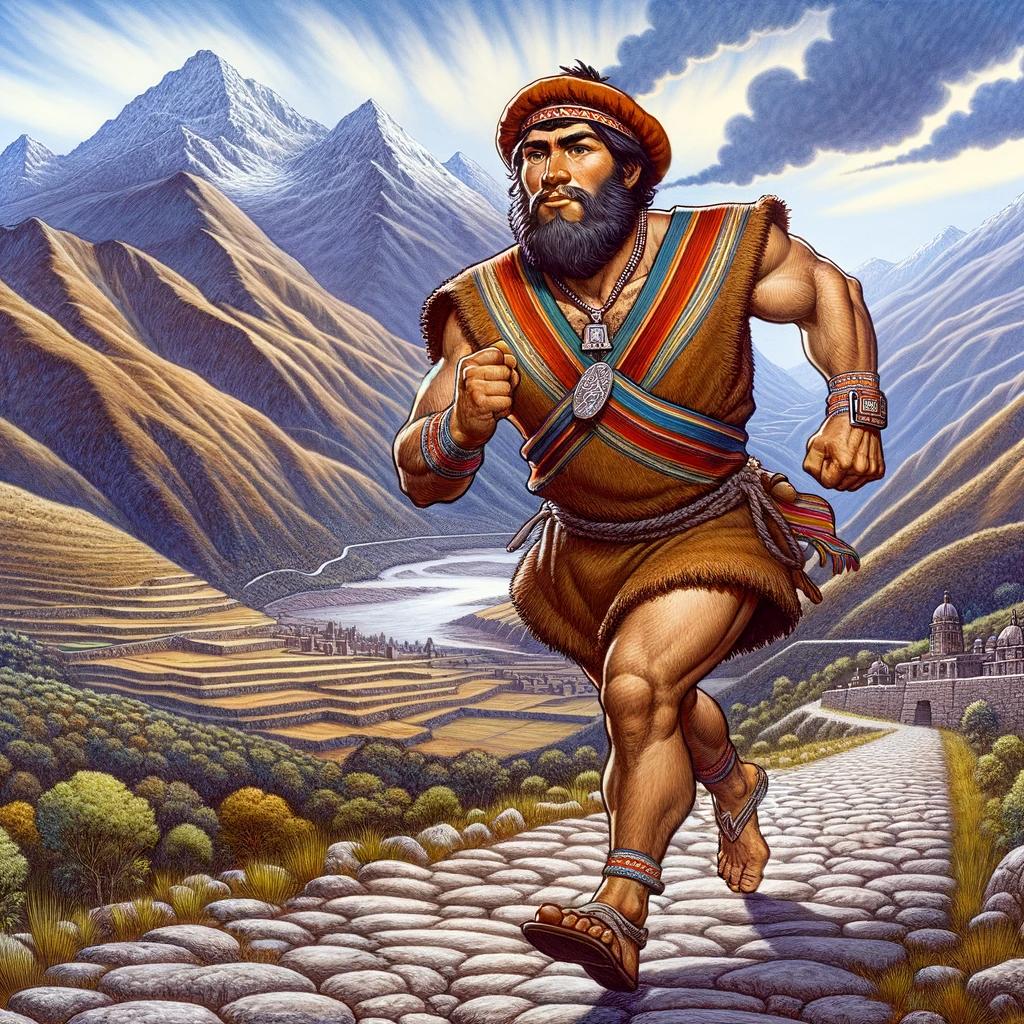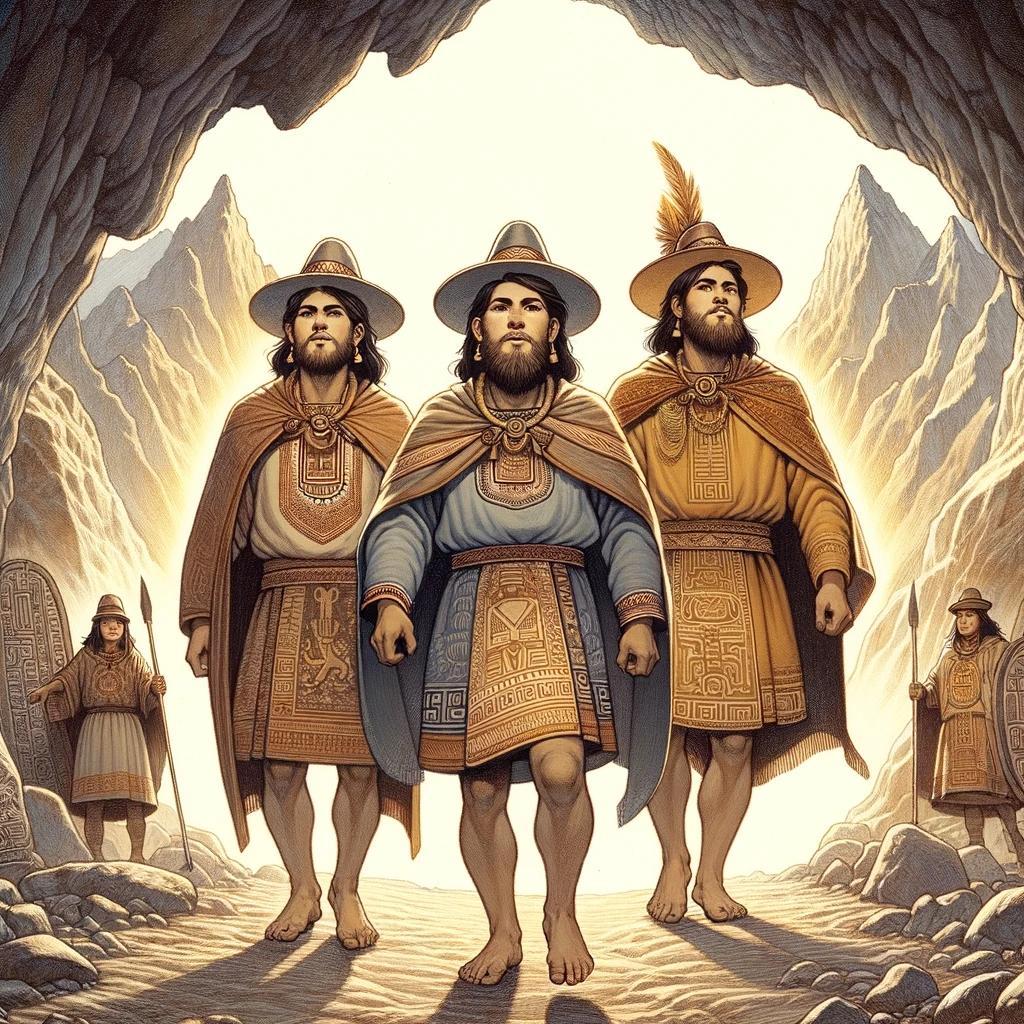Yawar Waqaq: Exploring the Legacy of Inca Emperors
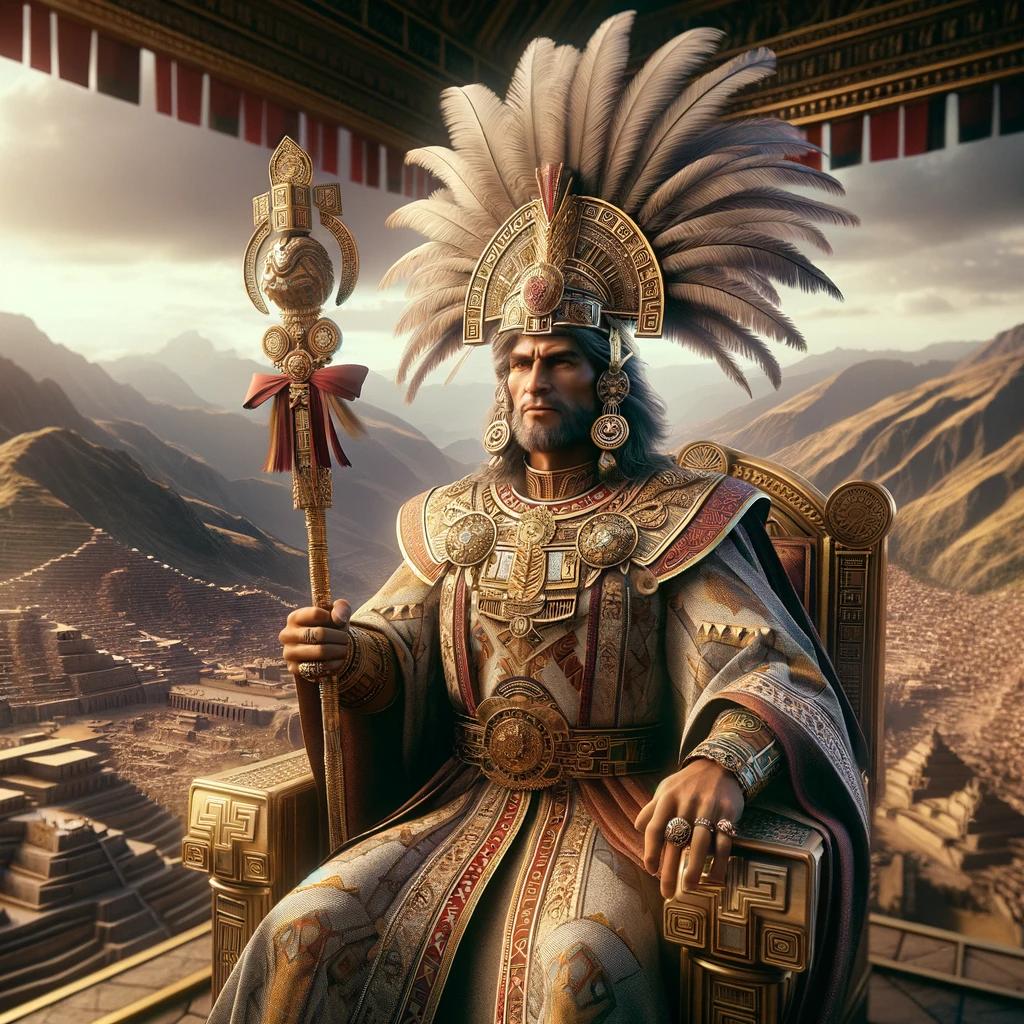
Yawar Waqaq, the 7th Sapa Inca of the Inca Empire, played a significant role in its expansion. His reign witnessed the conquest of various territories, strengthening Inca dominance.
However, his personal life was marred by tragic events, including the assassination of his sons. This article explores Yawar Waqaq’s reign, his conquests, and the enduring legacy he left in Inca history and culture.
Additionally, it delves into the importance of Cusco, the capital city, during his rule.
The Rise of the Inca Empire
The Inca Empire, also known as Tawantinsuyu, emerged as a powerful and influential civilization in the Andean region of South America. Its rise to prominence can be traced back to the early 13th century, under the leadership of Manco Cápac, the first recorded Sapa Inca.
The Inca Empire’s rapid expansion was propelled by its effective organizational structure, infrastructure development, and military prowess. Through strategic alliances, conquests, and assimilation of neighboring cultures, the Incas established their dominance over a vast territory, extending from present-day Colombia to Chile and Argentina.
The Inca worldview was shaped by their spiritual beliefs, notably the worship of Inti, the sun god, and the veneration of their ancestors. Their agricultural practices, such as the construction of terraces and the usage of irrigation systems, enabled them to cultivate crops in challenging mountainous terrain.
As the empire grew, successive Inca emperors played a pivotal role in consolidating its territories, fostering social cohesion, and maintaining political stability. Yawar Waqaq, the 7th Sapa Inca, marked a crucial turning point in the empire’s history with his expansionist policies and strategic conquests.
In the following sections, we will delve deeper into the reign of Yawar Waqaq, his accomplishments, and the lasting legacy he left behind as one of the notable Inca emperors.
The Reign of Yawar Waqaq as the 7th Sapa Inca
Yawar Waqaq, also known as Yahuar Huacac, ascended to power as the 7th Sapa Inca of the Inca Empire, marking a significant chapter in the history of Inca rulership.
His reign, which commenced around the year 1380, was characterized by the empire’s external expansion and conquest of new territories.
Under Yawar Waqaq’s leadership, the Inca Empire saw remarkable strides in territorial expansion.
He orchestrated successful conquests in various regions, such as Pillauya, Choyca, Yuco, Chillincay, Taocamarca, and Cavinas, solidifying Inca dominance.
However, amidst the achievements, Yawar Waqaq faced personal tragedies that cast a shadow over his rule.
Despite designating his second son, Pahuac Gualpa Mayta, as his successor, both Pahuac and his other sons fell victims to assassination. This unfortunate series of events, driven by the ambitions of Yawar Waqaq’s concubine, left a lasting impact on his reign.
During his time as the Sapa Inca, Yawar Waqaq resided primarily in Cusco, the capital of the Inca Empire. It was from Cusco that he initiated and planned the conquests that would expand and shape the empire.
The reign of Yawar Waqaq as the 7th Sapa Inca played a crucial role in establishing the foundation for the subsequent growth and consolidation of the mighty Inca Empire. His conquests and personal struggles left an indelible mark on Inca history and remain as testaments to the complexities of leadership during that era.
Expansion Strategies of Yawar Waqaq
As the 7th Sapa Inca, Yawar Waqaq was driven by a relentless desire to expand the Inca Empire and solidify its dominance in the region. He implemented a strategic and calculated approach to achieve his goals.
Here are some of the key expansion strategies employed by Yawar Waqaq:
- Conquest through military campaigns: Yawar Waqaq led numerous military campaigns to subdue neighboring territories and extend Inca rule.
Through skilled tactics and the use of a disciplined army, he successfully conquered territories such as Pillauya, Choyca, Yuco, Chillincay, Taocamarca, and Cavinas.
- Alliances and diplomacy: Yawar Waqaq recognized the importance of building strategic alliances with neighboring tribes and regions.
By forging alliances and establishing diplomatic relations, he was able to gain support and expand Inca influence through peaceful means.
- Infrastructure development: Yawar Waqaq understood the importance of infrastructure in maintaining control over conquered territories.
He invested in the construction of roads, bridges, and communication networks, which facilitated trade and communication, while also aiding in the expansion and consolidation of the Inca Empire.
- Social integration and colonization: To solidify control over conquered territories, Yawar Waqaq implemented a policy of integrating local populations into Inca society.
This involved fostering cultural assimilation, including the adoption of Quechua language and Inca traditions, as well as encouraging intermarriage between Inca and local elites.
Through these expansion strategies, Yawar Waqaq laid the foundation for the continued growth and consolidation of the Inca Empire, setting the stage for future Inca emperors and their conquests.
Yawar Waqaq’s Personal Life and Tragedies
Yawar Waqaq’s personal life was marred by conflicts and tragedies. At a young age, he was kidnapped by the Ayarmacas due to a matrimonial dispute, but he managed to escape with the help of Chimpu Orma, the lover of one of his captors.
This early incident foreshadowed the challenges he would face throughout his life.
Despite his courage and determination as a ruler, tragedy struck Yawar Waqaq’s family. He designated his second son, Pahuac Gualpa Mayta, as his successor.
However, both Pahuac and his other sons were assassinated. One of Yawar’s concubines, driven by her own ambitions, murdered Pahuac, hoping her own son would become the next Sapa Inca.
These personal upheavals undoubtedly had a significant impact on Yawar Waqaq’s reign and state of mind.
They added further complexity to his already challenging task of governing and expanding the Inca Empire.
Despite the tragedies he endured, Yawar Waqaq’s legacy as a ruler and conqueror remains ingrained in the history of the ancient Inca Empire.
His personal tribulations provide a glimpse into the complexities of power and the struggle for succession among the Inca emperors.
Exploring the Territories Conquered by Yawar Waqaq
During his reign, Yawar Waqaq implemented strategic military campaigns that resulted in the conquest of several territories. These conquests played a crucial role in expanding the Inca Empire, solidifying Inca dominance, and paving the way for its subsequent growth under future rulers.
Under Yawar Waqaq’s leadership, the territories of Pillauya, Choyca, Yuco, Chillincay, Taocamarca, and Cavinas were brought under Inca control. Each conquest presented its own set of challenges, but Yawar Waqaq’s military brilliance allowed for the successful incorporation of these territories into the expanding Inca Empire.
These conquered lands provided valuable resources such as agricultural products, precious metals, and strategic geographical positions. The inclusion of these territories significantly bolstered the empire’s wealth, power, and influence in the region.
The expansion of the empire under Yawar Waqaq’s rule also led to an increase in cultural diversity and the assimilation of different traditions within the Inca Empire. These conquered territories brought new perspectives, customs, and practices that enriched the cultural fabric of the empire.
Overall, the territorial expansion achieved during Yawar Waqaq’s reign contributed greatly to the growth and consolidation of the Inca Empire. The conquered lands not only provided economic prosperity but also played a role in shaping the diverse and vibrant culture of the empire.
Insights into the Leadership Style of Yawar Waqaq
As the 7th Sapa Inca of the Inca Empire, Yawar Waqaq wielded significant power and influence. His leadership style was characterized by assertiveness, strategic thinking, and a focus on expanding the empire’s territories.
Yawar possessed a keen understanding of military tactics, which he utilized in his conquests.
One of the key aspects of Yawar’s leadership was his ability to inspire and rally his troops.
He led by example and was often at the forefront of battles, demonstrating bravery and resilience. This hands-on approach not only boosted his soldiers’ morale but also earned their loyalty and respect.
Yawar Waqaq was known for his astute decision-making skills. He carefully strategized his conquests, considering the political, economic, and military implications of each move. His ability to assess risks and adapt to changing situations enabled him to effectively expand the empire’s territory.
Furthermore, Yawar Waqaq valued the opinions of his advisors, seeking their counsel before making important decisions. He fostered an environment of collaboration and surrounded himself with trusted individuals who contributed to the empire’s growth and success.
Yawar’s inclusive leadership approach played a crucial role in maintaining a sense of unity within the empire.
In conclusion, Yawar Waqaq’s leadership style was defined by assertiveness, strategic thinking, and a focus on territorial expansion.
His ability to inspire his troops, his astute decision-making skills, and his inclusive approach to leadership were instrumental in shaping the empire’s future. Yawar’s reign left a lasting legacy in Inca history, highlighting the importance of strong leadership in the growth and success of empires.
Legacy of Yawar Waqaq: Implications for the Inca Empire
Yawar Waqaq’s reign left a profound impact on the Inca Empire, shaping its future trajectory and leaving behind a lasting legacy. Here are some key implications of Yawar Waqaq’s rule:
- Strengthening of Inca Expansion: Yawar Waqaq’s relentless pursuit of conquests expanded the Inca Empire’s territorial borders, enhancing its power and influence.
- Consolidation of Administrative Structures: During his reign, Yawar Waqaq implemented administrative reforms that increased centralization and organization within the empire, establishing the groundwork for effective governance.
- Translation of Power and Succession: Yawar Waqaq’s tragic experiences with his sons and their subsequent assassinations led to changes in the process of succession.
His struggles highlighted the importance of an orderly and predetermined transfer of power.
- Construction and Cultural Patronage: Yawar Waqaq’s reign saw the development of magnificent architectural projects and the promotion of cultural patronage, leaving behind a rich artistic heritage that showcased the empire’s grandeur.
- Expansion of Socioeconomic Influence: As the empire expanded under Yawar Waqaq, the Inca people’s socioeconomic influence grew, fostering economic prosperity and cultural exchange throughout the new territories.
Overall, Yawar Waqaq’s reign left indelible marks on the Inca Empire’s history, influencing its governance, territorial expansion, power succession, artistic expression, and socioeconomic influence.
His leadership and the lessons learned from his reign would shape the empire’s future path as it continued to expand and evolve.
Yawar Waqaq’s Contribution to Inca History and Culture
Yawar Waqaq, as the 7th Sapa Inca of the Inca Empire, made significant contributions to Inca history and culture. His reign marked a crucial period of expansion for the empire, solidifying its dominance over a vast territory.
Under Yawar Waqaq’s leadership, the Inca Empire experienced unprecedented growth, with the conquest of Pillauya, Choyca, Yuco, Chillincay, Taocamarca, and Cavinas. These conquests not only expanded the Inca’s territorial reach but also further demonstrated their military prowess and ability to assimilate diverse regions into their empire.
Yawar Waqaq’s reign also witnessed the development of key infrastructure projects, such as the expansion of the road network, including the famous Qhapaq Ñan. These roadways facilitated communication, trade, and the administration of the empire, contributing to its socio-economic and cultural integration.
Additionally, Yawar Waqaq’s patronage of art and architecture left an enduring mark on Inca culture. He supported the construction of significant buildings, including temples and palaces, adorned with intricate stonework and skilled craftsmanship, reflecting the empire’s grandeur and religious beliefs.
Furthermore, Yawar Waqaq’s leadership inspired future Inca rulers, reinforcing the concept of divine kingship and the importance of expanding the empire’s reach. His conquests and administrative achievements served as a foundation for the growth and consolidation of the Inca Empire.
In conclusion, Yawar Waqaq’s contributions as the 7th Sapa Inca greatly influenced Inca history and culture. Through territorial expansion, infrastructure development, and the promotion of art and architecture, his reign left an indelible legacy and helped shape the identity of the Inca Empire.
The Importance of Cusco in Yawar Waqaq’s Reign
Cusco, the capital city of the Kingdom of Cusco, played a pivotal role in Yawar Waqaq’s reign as the 7th Sapa Inca. Situated in the heart of the Andes, Cusco served as the political, administrative, and cultural center of the Inca Empire.
Under Yawar Waqaq’s leadership, Cusco experienced significant development and expansion. The city became a hub of economic activity, with bustling markets and thriving trade networks connecting various regions of the empire.
Its strategic location facilitated communication and transportation, enabling efficient governance and rapid military mobilization.
Cusco also served as a symbol of Inca power and authority. Yawar Waqaq invested substantial resources in the architectural and urban development of the city, constructing grand palaces, temples, and administrative buildings.
These structures not only showcased the wealth and sophistication of the Inca Empire but also solidified Cusco’s status as the political and cultural capital.
Beyond its political significance, Cusco held immense religious and spiritual importance.
It was believed to be the sacred center of the Inca cosmos, where the Inca civilization originated. The city was adorned with magnificent temples and ceremonial sites, where rituals and sacrifices were conducted to please the gods and ensure the prosperity of the empire.
In conclusion, Cusco was a vital center of power and culture during Yawar Waqaq’s reign. It served as the administrative and political hub, a thriving economic center, and a spiritual site of great significance.
Its rich history and legacy continue to fascinate and attract visitors from around the world.
.











